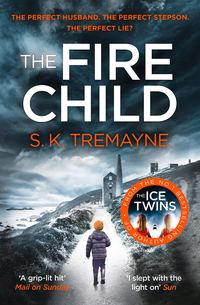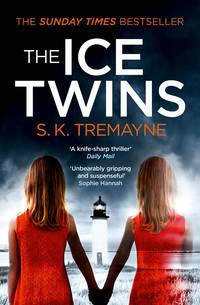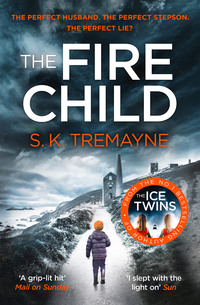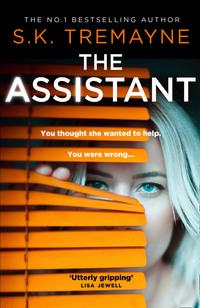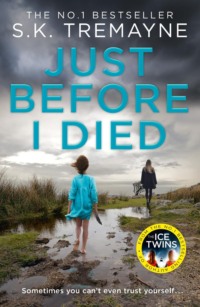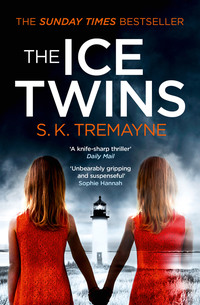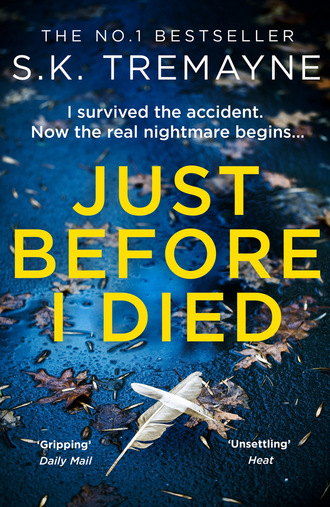
Полная версия
The anxious, fluttering wind carries the scent of newly chopped pine from the forest. I’m not sure whether to be disturbed by my daughter’s monologue, one of Lyla’s Aspergery lectures, or happy that she is, at least, communicating.
‘Have you finished with your drink?’
Lyla says yes and hands me her finished carton of apple juice.
‘Thanks for bringing me here.’
‘Hey. It’s nice for me too, Lyla. I love these circles, like you.’
She nods, but she also shakes her head.
‘What is it?’ I ask.
‘You’re wrong though, Mummy. Wrong.’
‘Why? Wrong in what way?’
‘You said I’d never been here before. But I have been here before. Here to Grey Wethers. I remember it.’ As she speaks, she repeatedly brushes non-existent sandwich crumbs from her jeans. Brush brush brush. ‘I’ve been here before, with you and Daddy.’
I reply, very gently, ‘No, darling, you haven’t been here, not with me, perhaps you came here with Daddy, or Uncle Dan, but not me.’
Lyla shakes her head. Stops brushing. ‘I have been here. You’ve forgotten.’
‘No, darling, I—’
And now I remember. I murmur, out loud: ‘Oh, yes, my God.’ She’s right. Lyla has been here before. In fact she was here the very first time I came here. Adam brought me to see the Grey Wethers and I was carrying Lyla on my back, in a harness, because she was nine months old.
For a moment I am speechless.
I know that my daughter, like quite a few people on her part of the spectrum, has this ability to recollect way back beyond normal human memory, but it always surprises me. And delights me. My daughter has issues; but she also has gifts. And this is one of these gifts, however unsettling.
Lyla gets to her feet. Picnic time is over. We begin the walk back to the car.
‘So you had a nice time?’
‘Yes, Mummy, yes, thanks. Look, here’s Felix and Randal, can we give them the last of the peanut butter sandwiches?’
The dogs are galloping over the windswept brown turf. Lyla takes the picnic box from my rucksack, unwraps the foil, and hands out the crusts. The dogs eat as if they haven’t been fed since they were pups. I’m sure they’d prefer fresh meat, but they would probably eat dust and pebbles from Lyla’s hand: their adoration of her is total.
Our long, chilly walk back to the car is quiet, the journey to Huckerby is quiet, everything is quiet, until we are a mile from home and Lyla asks if we can go to Hobajob’s Wood. It’s another one of her favourite places: she finds rare flowers there – eyebright, fritillary – and the iridescent shells of nameless blue beetles. Flowers and insects and little weathered claws.
I glance at the wintry sky, ‘It’s getting really dark, sweetheart. We need to get home.’
‘Oh please, Mummy. We’re so close.’
‘Hmm.’
The day has been good. One of our best since my accident. I experience a surge of maternal happiness. Why not indulge her? ‘All right, but only for a few minutes. It’ll be night in half an hour.’ Parking the car in the lay-by, we begin the cold walk along the cold valley to the cold and dense little wood with its twisted, moss-hung oak trees, clawing at the blank winter sky. Hobajob’s Wood is like a smaller version of famous Wistman’s Wood. Not quite as atmospheric, but not as touristy, either. Hidden away.
Our secret.
The dogs run ahead, leaping over boulders. They know the route well, it looks as if they are keenly following the scent of a badger or a fox. I pat my pockets, wishing I had brought a torch. The daylight will be gone in twenty minutes. Anxiety rises, very slightly. I want to get home, to a nice roaring wood-fire. Whatever timid warmth the day possessed has now gone for good.
It’s going to be a very bitter winter night on the high moorland.
The trees surround us, their cold branches scratching my anorak. It must be below freezing now: the perpetual Dartmoor dampness has turned, here at Hobajob’s, into a hard-core frost. The twigs and leaves underfoot make brittle, snapping sounds as we pace. Lyla is eagerly pursuing the dogs towards the gloom, towards the little clearing in the middle of the wood, where she always finds her treasures. The clearing was probably a Stone Age hut, many thousands of years ago, or some Neolithic shrine, no one quite knows.
We have to cross a stile, an ancient wall, it could be two hundred years old, it could be two thousand, after that we climb a hill and the woodland deepens again, surrounding the clearing. Cages within cages, no birds sing.
The dogs are already there. I can see them in the frosty gloom, circling shapes, like loping wolves in a Victorian picture book. They are barking wildly, oddly. Making a noise I have never heard from them before. What have they found?
Lyla turns to me, her face worried.
‘What’s wrong with Felix and Randal? Mum? Something is wrong!’
I have a fierce and overwhelming urge to turn and run back along the deepening shadows of the path to the car. It’s freezing cold. It’s nearly dark. I am scared, of what I do not know.
But I don’t want to show Lyla my fear. Get the dogs, and go home. Now.
Lyla runs towards the dogs as their howling gets even louder. I can barely see a thing; the winter evening is falling fast, dark grey and black, and the mossed and gathered trees make it darker still. ‘Mummy!’
Lyla’s yell cuts right through me.
She is yards ahead, in the clearing; I push icy brambles aside and run into the sombre glade. The dogs are circling and yowling. Fiendish. Perhaps they are simply scared of the weather, and the whiteness: here in the dark cold core of the forest, there’s been an ammil, that strange Dartmoor phenomenon when an initial thaw in cold weather is turned to ice, once again, as deep winter suddenly returns, devouring and glaciating.
In the slantwise evening light, this ammil, as always, looks beautiful. The special moorland ice storm that makes silent glasswork of the world.
My mother always loved the ammils.
As the dogs raise their eerie lamentations I look around, in something like wonder, an infant on a dark Christmas Day: every twig on every branch on every wizened little tree looks like the finger of a candied skeleton, a slender see-through bone of sugar. All the holly leaves are turned to immobile flames of white frost; through the trees I can see the distant shaggy cattle walking on grass made of tiny crystal spears.
But the dogs won’t stop their yowling. What is frightening them?
‘Look, Mummy, look!’
Lyla is pointing to the centre of the clearing. I can see a couple of dead birds and a few dead mice, three or four, lying, claws in the air, no doubt killed by the vicious returning cold. They’re in a kind of line, but that means nothing. Next to them is a trail of household rubbish. Daily waste. Casually dumped. It makes me so angry when people do this to Dartmoor, it makes Lyla even angrier.
It sometimes makes her cry.
Yet something snags. I look again at the scattered line of trash in the frost. I can see a hairbrush. Incongruously pink, and now rimed with a varnish of frost.
It is mine. I am sure it is mine. I lost it a while ago. And now I step a little closer I can see my own fine brown hairs are still meshed in the prongs, though stiffened to wire by the cold, and there are scrunched-up, mouldering tissues trailing from the brush, red and stained, either kissed with lipstick, or dabbed with blood. I shudder in the freeze. Is this my blood? And there, at the end, under the tree, is that a tampon? One of my used tampons? I have to throw away tampons carefully, in bags: our sewage system out in the wilds cannot cope with these things, but why would my tampon be scattered out here?
Revulsion shudders through me. I feel invaded, or poisoned. Violated. It must be the scent of all this, the blood, the hair, the waste, that is freaking out the dogs, who are now backing away from the clearing, hackles up, growling.
Lyla calls after them. I stare at the tissues daubed obscenely with my blood. Who is doing this? Who has taken my trash, my hair, my brush, and laid them out here in the wood, next to these sad little birds, stiffened and killed by the cold? I look at my daughter, could she have done this, as a joke, or some ritual, making a pattern? Why? This is not her style, she is not sly or conniving, and she looks as shocked and alarmed as me.
‘Mummy, what’s wrong with the dogs?’ Lyla’s face is even paler than usual. ‘Where are they going?’
My blood thumps. I wonder if it was me that dumped this here, or lost this here, and I have simply forgotten. Part of my amnesia. Yet why such intimate waste? Blood, tissues, hair.
Abruptly, Lyla grabs at my hand, her fingers freezing, and lets out a piercing scream.
‘Mummy! I can hear someone coming!’
Hobajob’s Wood
Wednesday evening
‘What? Where?’
I clutch my daughter’s hand, very tight. It is so dark now I can hardly see the bare frozen twigs of the dead trees on the other side of the clearing.
‘Lyla, what can you hear?’
She shakes her head and tilts her face, listening intently. My words are clouds of mist. The twigs tinkle in a subtle breeze, like sentimental chimes. It could be minus five. We need to get away, get far away from this wood and this sickening trail of trash.
‘Lyla, come on.’
Lyla shakes her head at me, almost angrily. ‘Listen!’
I strain but can’t hear anything unusual. ‘There’s nothing, no one. Come on, Lyla—’
‘No! That’s him!’
She’s almost screaming. Her hearing is ten times better than mine. Needles of fear prickle my fingers.
‘Who? Lyla, who can you see?’
‘No one!’ she says, whispering now. Hard and low. ‘But I can hear him, he’s out there, I know it! Mummy, he’s watching us, it’s him, the man on the moor, in the freeze.’
‘Stop this. Let’s go! When we get home we can call the police.’ I pat my raincoat pockets for my phone. I have no phone, of course, and anyway it wouldn’t get a signal out here, but it does have a little torch. But I left it charging in the car. So we don’t have any light. We have to leave right now.
‘Lyla, come on, we have to go.’
‘But what if he sees, Mummy, what if he catches us on the way? He’ll do it again … He’ll take you to the lake.’
‘What are you talking about?’
‘Mummy, Mummy, look!’
She is chattering with cold, or terror. Helpless, I stare around at the quiet wood. In the gloom, the leafless, frosted, moss-hung trees seem to edge towards us, their dark, frost-rimed fingers lifted to the twilit sky as if they were once a crowd of trapped, imploring people, burned to blackness by an awful fire.
Is that someone, or something, in the trees?
‘Mummy, he’s so close! That way, over there!’
I look and think, for a second, I see movement. But no, there is nothing here, is there? Just us and the dogs and the dead birds, and my hairbrush, and a hideous used tampon.
My resolve is snapped, by a crackle of frosted twigs, a human footfall.
‘Mummy!’
Lyla bolts. She wrenches from my grasp and goes sprinting down the frosty path, out of the woods, towards the distant car. She is a faster runner than me, she runs so much on the moor. But I must not let her out of my sight. I hear the dogs barking wildly as they scatter into the woods, not pursuing us: pursuing someone or something else. Or they are being pursued in turn.
‘Felix!’ I shout. ‘Randal! Come on!’
Lyla is racing away, a dim little figure, getting dimmer in the dusk. Trees and brambles snag at me, lacerate my hands and neck as I stumble on cold, mossy rocks. I urge myself on; it is so dark, I can barely see, but I can hear my daughter. I fall, cracking a knee on an icy tree stump. Ah. Ah ah ah! I shout at the sudden sparkling pain, and look ahead. Lyla has stopped, on the path, by a little wooden footpath sign.
She turns in the gloom, and shrieks, ‘Mummy, he’s coming! He’s coming after you! Right behind you!’
‘Lyla—’
‘Don’t look back, Mummy, get up get up!’
I can hear crashing noises behind me, something big emerging from the cold heart of Hobajob’s Wood; the dogs, or someone else?
Someone I know.
Pushing myself to my feet, I start running, again. But Hobajob’s Wood wants to lock us inside. Dead branches block the path, ice patches crack as I trample my way, breathing chilly fog. I have reached the ancient stone wall, toothed with new icicles. Climbing over, I jump down, the crashing behind me as loud as ever – but I am too scared to look back.
There. The car. A welcome grey shape in the deathly twilight. I see Lyla is already inside, her face pressed to the rear window, her eyes wide with fear.
The cold car door handle stings my hand, I yank it open and fall into the seat and twist the key into the ignition, but Lyla shouts at me, ‘Wait, Mummy, the dogs, where did they go?’
‘They ran off, but they’ll find their way back. We have to go.’
‘No! He’ll kill them.’
She is right, she is wrong, she is screaming, I open the door again, to the frigid dark air, and see – what? Who? Something? – and there is Felix, crashing over a fence, leaping it in one go, three foot high. He tears towards us, leaps across me into the car, wet and cold and doggy and yowling. He jumps on to Lyla, clearly terrified.
Forcing Felix away from her face, Lyla cries, ‘Where’s Randal, we can’t go without him!’
I can hear something. Getting nearer.
‘We can’t wait any longer!’
‘Over there!’
I stare, helpless, into the dark pillars of the trees and the crouched shapes of bushes. It is now too dark to see anything for sure. It is as if I am drowning again in the black waters of Burrator. Even as it formed, the ammil is beginning to melt. Drip, drip, drip. The black ice dwindles.
‘Hide, Mummy. Duck down so he can’t see!’
It feels ludicrous. Surely he will see us. He’ll have heard us slamming the car’s doors. But I don’t know what else to do.
Lyla is nearly crying. ‘Duck down low, Felix, Mummy, please hide.’
I do as she says; cower low in my seat. Maybe he will run past. Maybe he has got Randal. Maybe he’s been watching all along, for weeks.
The seconds pass. Felix whimpers. Lyla shushes him, fiercely.
Seconds become minutes. He is here, he will open the door.
My fingers and lips are numb from the cold. I try to keep my breathing as quiet as possible. And I wait.
Nothing happens. The silence endures. From crashing and panic to total immobility and total calm. The cold is the only noise, like a steely ringing in my ears.
My limbs ache from this cramped position. I need to stretch. We’ve been here ten minutes. Nothing has happened. Was there ever anything? I begin to doubt. The brush, I definitely saw the brush, and the dead birds, and the tissues – but was that tampon, stained with blood, really mine? Was any of it really mine? There’s no sure way to tell.
Maybe we just panicked. Overreacted. People dump litter all the time in Dartmoor. Adam loathes them. Says he will set the dogs on them if he ever finds them, let the lurchers tear the yobs apart, limb from screaming limb. See how they like their lungs and kidneys being scattered across the tors.
Even as I think this, I hear a friendly, recognizable growling, outside the car.
Kicking open the door, I see Randal, his tongue lolling, smoking cold breath in the dimmity. He jumps casually into the car, and on to the back seat, to be fussed by Lyla, and nuzzled by Felix. He does not seem frightened. He does not act like a dog that was chasing, or being chased. It’s Randal. Our dog. Behaving normally.
Lyla’s face is blank now, the terror gone.
‘Let’s go,’ I say.
She nods, and shuts her eyes.
I work it through; and I work it out. It really was a simple panic. We panicked. It’s what people do in woods. In the dark, as the cold and the night kicks in. They panic: they see the Great God Pan. The fabled monster. But the monster is always your imagination, conjuring terror out of rowans and frost and little dead birds. And it was an average plastic hairbrush, iced with frost. Could have been anyone’s.
I turn the key and the lights illuminate our drive home. Shadows of trees line the route as we unbend the narrow road and reach Huckerby. We open the door to a warm kitchen, I turn all the lights on and make a pot of tea. Neither of us speaks. The dogs are fed. Lyla is subdued, can’t even look me in the eye. It is as if she feels guilty, or is still scared. She sits at the kitchen table, nibbling a biscuit, drinking a glass of milk. I feel a need for one of Andy’s hag stones, to hang on the lintel of the door. To keep the witches out, the evil influences of Dartmoor that creep their way along the thorny hedgerows, trying to find a way into your home.
At a beam of car lights, Lyla looks up. I hear the familiar sound of an engine, which is turned off.
Adam has returned.
He opens the door, brushing snowflakes from the shoulders of his fleece. As he shuts the door behind him his expression says it all as he looks at us.
We have mud on our hands and faces. I have scratches on my neck from the twigs and brambles.
‘Jesus. What happened to you two?’
I don’t know quite what to say. ‘Well, there was this load of crap in Hobajob’s, rubbish and tissues – anyway, we got a bit scared, and probably it was a joke, or coincidence, but it was frightening—’
Without warning, Lyla bursts into tears. She waves a hand at me, angrily. ‘I don’t know, I’m sorry, Mum, I thought I heard him, saw him, I thought he was coming to take you away again.’
Adam steps toward Lyla, but she turns and shakes her head and says,
‘Sorry, Daddy. Sorry. I want to go to sleep.’
And with that, she leaps to her feet, and runs up the stairs.
The dogs, as always, rise and follow, cantering noisily up the wooden steps to join her in her bedroom. We hear her bedroom door slamming shut.
Adam looks as if he wants to go after; I raise a hand. ‘Wait, please – let her be, for now. She’s frightened because, you see, there really was a scare. There wasn’t any man, but there were these dead birds—’
‘It’s freezing, it’s Dartmoor, it’s winter.’
‘Yes, but all the rubbish, strewn everywhere – it looked like it was from our bathroom.’
He regards me, sceptically; I press on.
‘And I wondered if Lyla is taking it there, likes she takes stuff to her den? Making patterns. But she’s too embarrassed to admit it. And yet, I don’t know, because she seemed as freaked out as me.’
‘Tell me the whole thing,’ he says. There is real anger in his expression, or some other emotion I cannot discern. ‘Tell me everything, Kath.’
And so I tell him the whole story, as he pulls up a wooden chair. I tell him about the day at Grey Wethers, the stones and the forest, and the trip to Hobajob’s; then the accelerated sequence of the yowling dogs, the tissues, the birds, and pattern of familiar household rubbish made so evil by the setting. My blood, my lipstick, my hair, arranged in lines and circles. In a ring of fine frost. And I admit the panic, the manic fear that gripped us, the sense of an imaginary man. A predator.
Adam stays silent as I explain, he is still in his damp Ranger’s fleece, as if he is a passing visitor.
‘So that’s it,’ I conclude, wearily, wanting his understanding, his sympathy. ‘Everything freaked her out, I mean it freaked me out, a used tampon? Someone’s hair, someone’s blood? Possibly mine?’
He gazes my way, his expression undecipherable. ‘You can’t know it was yours. We get fly-tippers all the time.’ He offers me a shrug. ‘Probably kids from Princetown. Bunch of tossers.’
‘I know,’ I say, unsurely. ‘Yes, I know all that. But in the middle of Hobajob’s, why there? And Lyla is really scared of something happening, to me, all over again. She’s not herself. So what do we do now?’ I want him to come over and hug me. To sort this out, be my husband, to help, to hug, to kiss. ‘Will she get over it, Adam? Will we be all right? When she sees I’m not going anywhere, will she stop imagining things?’
His expression is tinged with proper anger now. ‘No,’ he says. Firmly, coldly. ‘No. She won’t simply get better.’
Rising, he walks to the sink, and takes down a Plymouth Aquarium mug from a hook under the cupboard. His voice is low and sombre, darker than ever. ‘All this lying isn’t helping, it’s making things worse.’ He turns to face me. ‘Kath. It’s time. The time has come. There’s something you need to know. About your accident.’
Huckerby Farm
Thursday morning
Adam is getting Lyla ready for school. He’s said nothing more since last night, nothing to explain his cryptic words. He’s told me I need to meet someone, and she will explain. Later yesterday evening, I heard him make a series of muffled phone calls, outside in the freezing yard, where there is sometimes better reception. It sounded as if he was arranging something.
Now he stands here in the kitchen, helping Lyla into her winter coat. We all turn to the sound of a car, squelching through frost and mud, into the farmyard. Adam goes to the door.
And there she is. Tessa. My brother’s wife. My thirty-eight-year-old sister-in-law. The woman we once sought out, for advice on Lyla’s suspected Asperger’s: because she is a psychologist, teaching psychology at Plymouth University.
Tessa walks into the kitchen and stands next to my fridge, with its magnets spelling Love You Mummy from Felix, a joke by my daughter, who likes to pretend Felix and Randal can read and write, as if they are real friends who can talk with her, and understand her.
‘Hello, Kath,’ says Tessa.
I don’t say anything in return. I glare at my husband. He looks back at me carefully, yet rather coldly.
Why has he brought Tessa Kinnersley to Huckerby? If he has something to say, why can’t he say it himself? Why involve Tessa, a psychologist?
As if I am mad.
In the distance I can hear the dogs barking happily. The normality makes me angry.
I am not mad. My memory is fragmented and I have odd panics but this was all anticipated. Mild to moderate brain injury, they said. Expect mood swings, sudden anxieties or depressions, difficulty with daily tasks, insomnia, nerves, prickliness, but you should also expect a slow and steady recovery.
Tessa comes a little closer. ‘Kath, I know this must be weird, and I’m really sorry, but I’m here to talk. That’s all. Adam thought it might be better if you heard things from me.’
‘What things?’
She flashes a glance at my husband. He responds with a subtle nod as he chats quietly with Lyla. Making sure she has everything in her schoolbag. He is ushering her away from the scene, telling her to wait in the car. I gaze at Lyla but she’s not even looking at me, as she exits. What is going on? The hag stones, the symbols made of birds, the objects in the forest, maybe it is all imagination and coincidence sending me to the edge. Perhaps Tessa really is the kind of person I need to see. A trained psychologist, who used to work at the prison, and for the police.
‘Kath.’
My husband’s voice rouses me. How long have I been stood here, lost in pointless thought? ‘Sorry,’ I say, and immediately regret it. Now I’ve apologized, I’m on the defensive. I feel a need to protect myself. This feels like a hostile situation. I am the woman who gets panicked in woods. How can she be allowed to drive?
‘Kath,’ says Adam. ‘This is difficult for everyone, but Tessa is a friend and a professional. You know that. So we thought it was the right way to do this. Cos it’s really important. There are questions you need to be asked. There’s stuff about your accident that you need to hear.’


